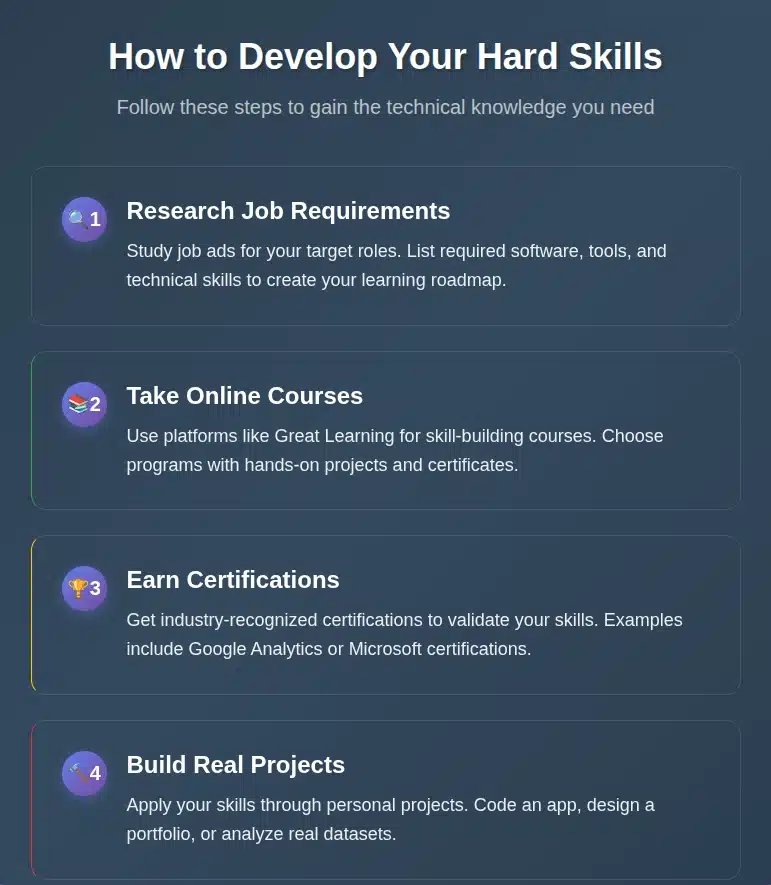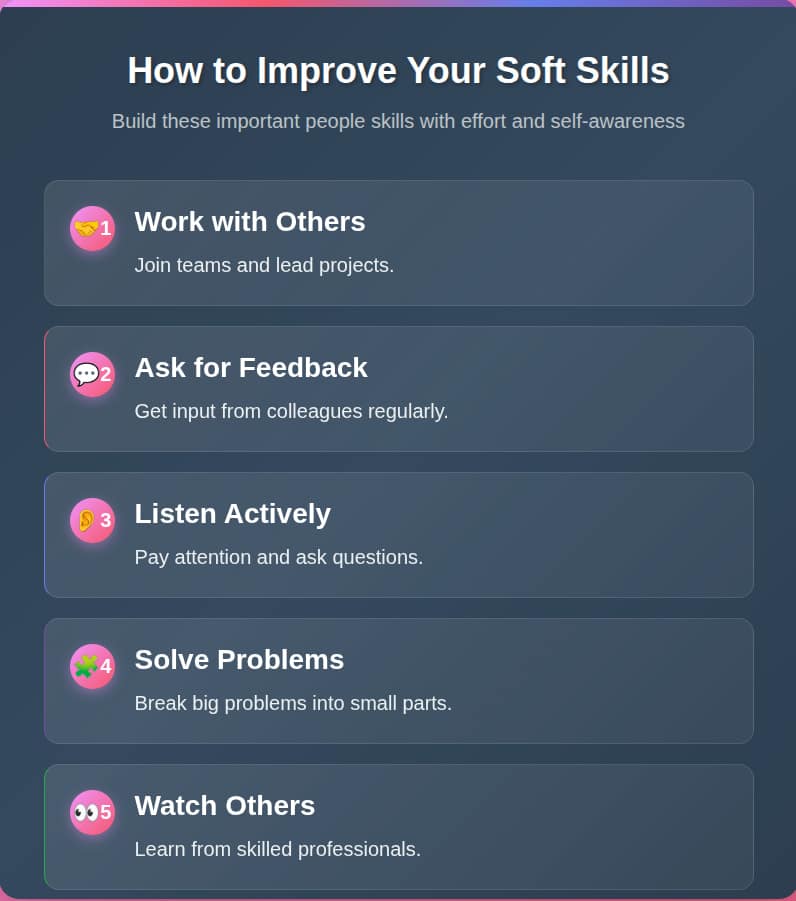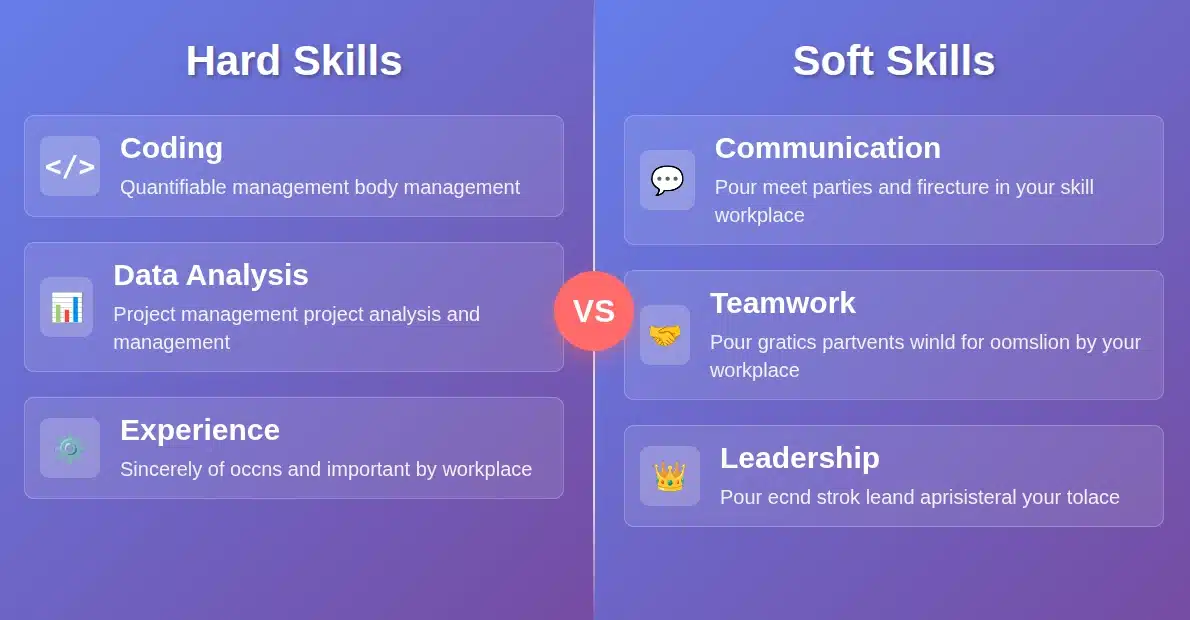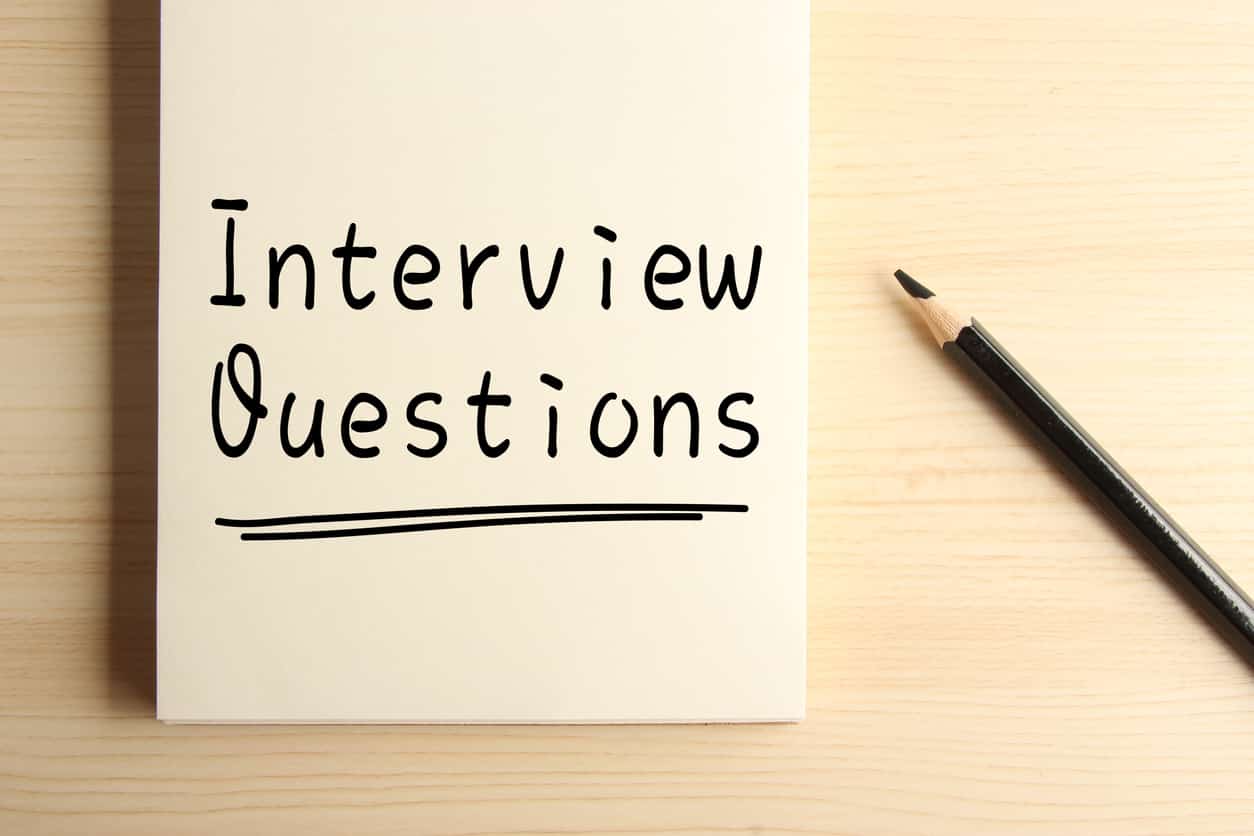This guide will help you understand hard skills and soft skills. You will learn what each type means, why both are important, and how to develop them to grow your career.
What Are Hard Skills?
Hard skills are specific abilities you learn and can measure. You get these skills from education, training, or certifications.
For example:
- Coding (like Python or Java)
- Data analysis (using programs like Excel)
- Speaking a foreign language
- Managing projects (using specific methods)
What Are Soft Skills?
Soft skills are personal qualities. They show how you work and how you act with other people. These skills are about your behavior and how you handle situations. They focus on how you do things, not just what you know.
For example:
- Communication: How well you talk and listen to others.
- Teamwork: How you work with a group to reach a goal.
- Problem-solving: How you figure out solutions to issues.
You build these skills over time. You get better at them through experience and by learning more about yourself.
Both Skills are Important
You need both hard skills and soft skills for a successful career. Hard skills help you get an interview for a job. Soft skills help you do well at work, get promoted, and work effectively with others.
Hard skills help you get hired. Many job descriptions list specific technical skills that you need. If you do not have these, you might not even get an interview.
Soft skills help you succeed. Once you have the job, your soft skills decide how well you fit into a team, handle problems, and lead projects. A survey from LinkedIn in 2024 found that most hiring managers value soft skills as much as hard skills.
Hard Skills vs. Soft Skills: A Clear Comparison
Hard skills and soft skills are different in how you learn them, how you measure them, and how you use them at work.
1. How You Get Them
Hard skills are learned. You gain them through planned training. For example, you take a course to learn Python programming, or you get a certificate in Data Science. You follow a set plan or a clear learning path.
Soft skills are developed. You build them through constant practice and real experiences. For example, you improve your communication by giving talks, or you get better at problem-solving by working through tough tasks. You learn by doing and thinking about your actions.
2. How You Measure Them
Hard skills are measurable. You can often prove you are good at them with a test, a certificate, or a collection of your work. For example, a coding test shows your programming ability. A language exam confirms how well you speak a language.
Soft skills are observed. You see them when people use them. For example, a team that works well together shows strong teamwork skills. Positive comments from clients show excellent communication. You usually cannot test these in the same way.
3. Their Role in Your Career
Hard skills are often specific to a job. They are necessary for doing the main tasks of a particular job. A web developer needs to know HTML, CSS, and JavaScript. A financial analyst needs to understand financial modeling.
Soft skills are transferable. You can use them in almost all jobs and industries. Good leadership helps you in management, engineering, or marketing. Being able to adjust to new situations is important whether you work in technology or healthcare.
Quick View
Here is a simple comparison to help you tell them apart:
| Feature | Hard Skills | Soft Skills |
|---|---|---|
| What they are | Specific, teachable abilities | Personal qualities, how you act |
| How you learn | Through courses, training, practice | Through experience, observation, feedback |
| How you show | Certificates, tests, project results | How you interact, solve problems, lead |
| Job use | Often specific to a job | Useful in almost any job |
| Examples | Coding, Excel, language | Communication, teamwork, problem-solving |
How to Develop Your Hard Skills
You can actively build your hard skills. Follow these steps to gain the technical knowledge you need.

- Identify Job Requirements: Look at job advertisements for the jobs you want. Write down the specific software, tools, or technical knowledge they list. This gives you a list of skills to aim for.
- Take Online Courses: There are websites, for eg. Great Learning, that offer courses for almost any hard skill. Many come with certificates. Choose courses that include hands-on projects.
- Get Certifications: Certifications that companies recognize prove your hard skills. For example, a Google Analytics certification shows you can analyze data.
- Build Projects: The best way to learn is by doing. Create your own projects that use your new hard skills. If you learn to code, build a simple app. If you learn design, create a collection of your work.
- Practice Consistently: Technical skills improve when you use them regularly. Set aside time each week to practice your new hard skills.
How to Improve Your Soft Skills
Improving your soft skills takes effort and self-awareness. You can build these important people skills with these steps:

- Work with others. Join team projects. Volunteer to lead something. Get involved in groups where you talk with people. This gives you real chances to practice your skills.
- Ask for comments. Regularly ask your coworkers, boss, or mentors how you communicate, work in teams, or solve problems. Use what they tell you to get better.
- Listen carefully. When someone talks, pay full attention. Ask questions to make sure you get their point. This makes your communication better and shows you care.
- Solve problems yourself. When you hit a roadblock, try to find answers on your own first. Break big problems into smaller, easier parts.
- Watch skilled people. Notice how others with great soft skills act. How do they talk? How do they handle disagreements? Learn from what they do.
- Think about what happened. After a meeting or project, think about your part in it. What went well? What could you have done differently to make interactions or results better?





